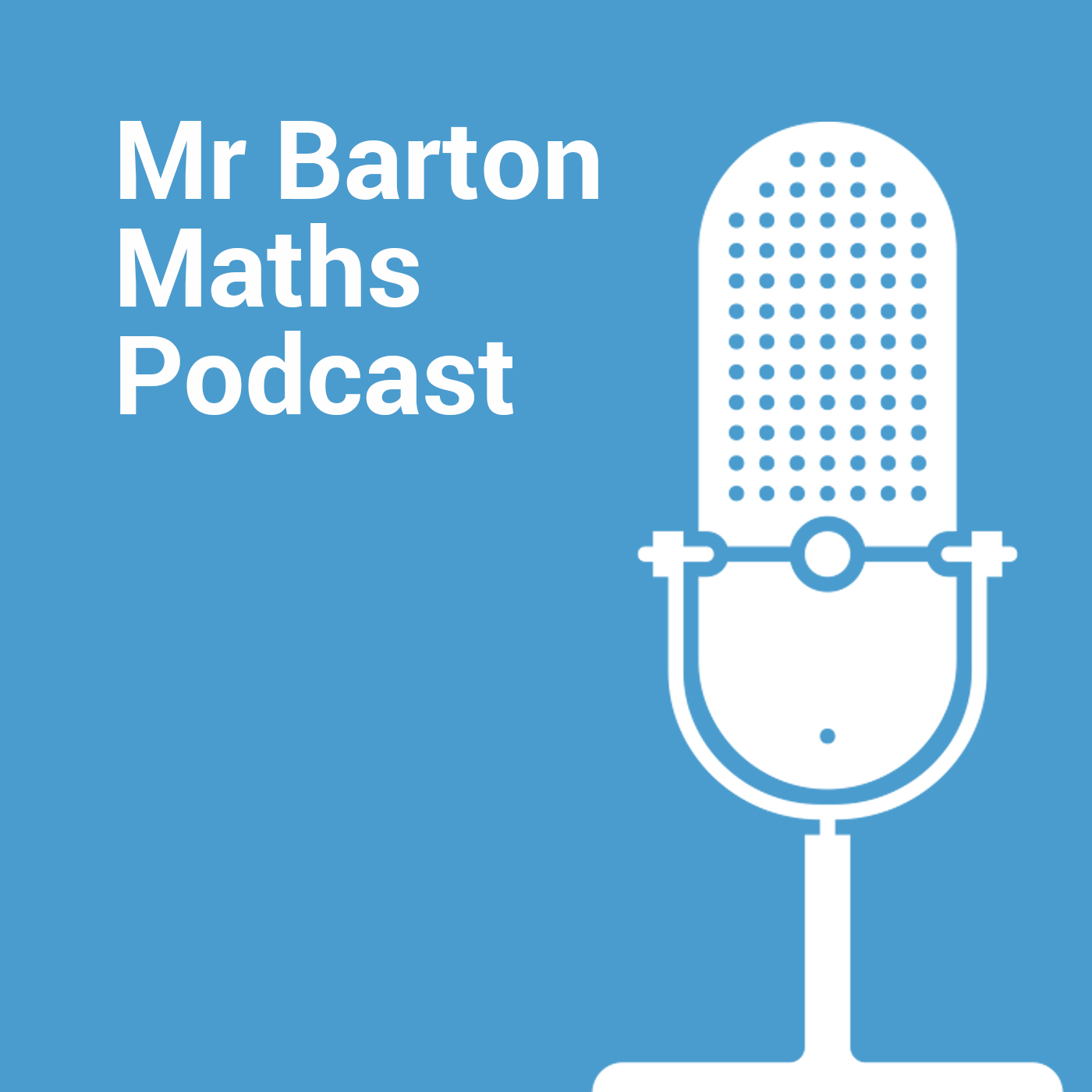#188 Ten ways to get amazing GCSE maths results with Jo Morgan
Description
Craig Barton and Jo Morgan discuss Jo's career journey and the context of her school. They then dive into the topic of achieving amazing GCSE results, starting with the importance of a solid Key Stage 3 and 4 curriculum and pedagogy. Jo emphasizes the need for high-quality teaching, a robust curriculum, and going into depth on topics. She also discusses the benefits of setting and the challenges of staffing Key Stage 3. Joe mentions the use of shared resources and the importance of consistency in teaching across the department. In this part of the conversation, Craig and Jo discuss the importance of being prescriptive in teaching methods and the use of calculators in the classroom. Jo emphasizes the need for live modeling and independent practice, while also acknowledging the challenges of using mini whiteboards effectively. They also discuss the benefits of regular calculator use from the start of Year 7 and the impact of embedded retrieval in lessons. In this part of the conversation, Jo discusses the use of warm-up booklets, assessment practices, and the benefits of using the online homework platform Sparks. She also talks about strategies for supporting the lowest and highest attainers at Key Stage 4. In this final part of the conversation, Jo and Craig discuss the impact of different qualifications on student outcomes, the importance of high standards and expectations in the math department, and the effective use of data to identify and address problems.
Links to all the resources mentioned can be found in the show notes here: mrbartonmaths.com/blog/jo-morgan-gcse/
Time-stamps:
Career journey and GCSE results in a South London comprehensive school. (5:16)
GCSE results and progress measures. (10:33)
School performance metrics and progress measures. (12:49)
The impact of progress 8 measure on students' future opportunities. (18:15)
Key stage three math curriculum and pedagogy. (23:47)
Math teaching strategies and resources in a school with non-specialist teachers. (28:18)
Sharing lesson plans and quality control in a school. (33:15)
Lesson planning and resource use in math education. (38:07)
Math teaching methods and expectations for lessons. (41:41)
Teaching mechanics for the first time. (45:34)
Using mini whiteboards in the classroom. (48:41)
Math teaching strategies and calculator use. (52:47)
Using calculators in math class to improve understanding and skills. (59:15)
Math education with a focus on calculator use and retrieval practice. (1:02:40)
Retrieval practice in language lessons. (1:07:29)
Using retrieval practice to fill knowledge gaps in math classes. (1:09:17)
Math warm-ups and booklets for engagement and assessment. (1:13:49)
Using retrieval practice, prerequisites, and assessment in math lessons. (1:18:29)
Using low-stakes assessments in math class. (1:22:52)
Effective whole-class feedback in math lessons. (1:27:40)
Teaching and assessment strategies in English grammar school. (1:29:16)
The impact of Sparks, an online maths platform, on student performance. (1:33:50)
Homework strategies in a UK school. (1:38:23)
Homework strategies and student motivation. (1:42:57)
Offering additional maths qualification to boost GCSE and A-level results. (1:48:13)
Math education, including further maths and entry-level maths. (1:51:58)
Teaching maths and setting high standards in a school. (1:55:33)
Effective leadership and data analysis in a high school math department. (2:00:38)
Data analysis and reporting in education. (2:06:03)
Department leadership and communication in schools. (2:13:20)
Department meetings and their frequency. (2:19:18)
Effective teaching strategies and data analysis in maths. (2:22:24)
Math interventions and support for Year 11 students. (2:27:16)
GCSE maths teaching strategies and student assessment. (2:32:19)
Math teaching strategies and school challenges. (2:36:36)
Improving GCSE exam review sessions. (2:41:12)
More Episodes
In this episode, Ollie and I tried something different. I've been working with a school to help develop a departmental lesson structure with their maths team. I know Ollie had been doing something similar with a school he has been working with, so it seemed a good idea to chat through our ideas...
Published 11/01/24
Ollie Lovell sent me a recording of a maths lesson he had recently taught in a school he has been supporting. I suggested we discuss the lesson, centring around Ollie’s planning, the decisions he made, and his responses in the lesson. Fortunately, Ollie agreed, hence what you are listening to...
Published 08/31/24
Published 08/31/24


